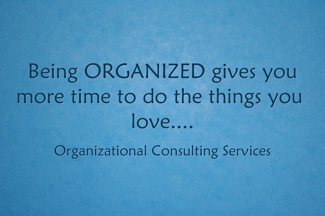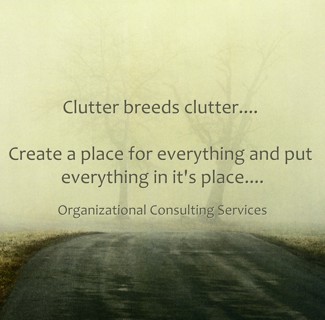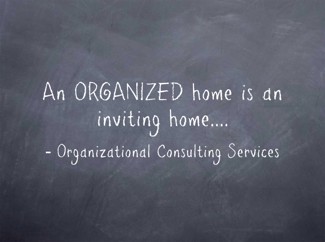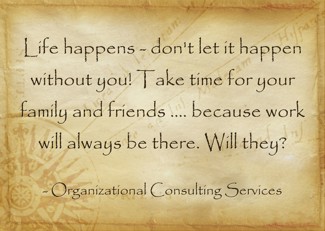25 Practical Time
Management Tips
Regardless of
how much we’d all like to have extra hours in our day to get things done, we’relimited by what we have to work with. Instead of wishing for more time, there
are ways to make the most of the hours available by practicing time management
tips.
The majority of
hard-working people want to practice good time management and they start out
well with this, but they forget to figure in the one biggest thing that
sabotages time.
Time Management for Interruptions
Interruptions
are one of the biggest time thieves in your life. You may not have actually
tallied how many minutes or hours have been stolen from your day by other
people or situations barging into your day.
Here are some
tips to help you eliminate or better deal with them:
1. Build time into every aspect of your day for those
interruptions that we all experience.
You will never
have a single day that’s not interrupted by something unexpected. This is
usually what throws people off course. It can break your concentration, making
it harder for you to get the flow back.
If you’re at
work and someone pops in for “just a minute,” you’ll notice that it always
turns into a lot longer. Before you know it, half an hour to an hour will have
passed and you can’t get that time back.
You want to
allocate time for these interruptions by looking at your day and figuring out
how much time you have to give these. For example, when someone walks into your
office, you can say, “I’m working on a project so I can only spare five
minutes.”
At the end of
five minutes, if the other person is still there, you say, “I’m sorry, but my
time is up and I have to get back to this.” If you respect your time, others
will, too.
2. Plan your day the night before.
This gives you a
go-to launching place. You know what you have to start on first. It helps you
to manage time if you have a map to follow - even if it’s simply a list of what
you must accomplish that day.
3. Plan your phone conversations.
This is a huge
time waster. But if you plan your conversations before you make the call, this
helps you stay in control of how long the conversation lasts. If someone calls
you and you need to get off the phone, you just say that you have to go.
Most people
don’t want to risk sounding rude, so they’ll remain on phone conversations that
are taking up a lot of their time. If
that sounds like you, there are several easy ways to end a phone conversation.
You can say
that you’re in a time crunch and have to go or that you need to take care of
something. Usually, that will cause the other person to say goodbye and end the
call.
It’s okay to
tell someone you can’t talk at the moment and will have to get back to them.
The second you start being someone else’s sounding board for all of their
problems, on an endless loop is when you get taken advantage of constantly.
4. Don’t let technology interruptions disrupt your time
management.
When someone
isn’t dropping by your office or home, they’re reaching out to you through
technology like email or on social media. These can quickly take up hour after
hour of your day because it’s easy to get sucked into playing a game while
you’re handling something business or personal related online.
If being on
social media is a must for you, let it be a scheduled interruption. For
example, you just write it on your planner that at lunch, you’ve scheduled ten
minutes to be on social media.
Stick to that
time just as if it were an appointment. If you have to, use an alarm on your
smart phone or set an egg timer so that you’re made aware of the end time of
this distraction.
5. Separate the interruptions between what must be
dealt with and what doesn’t have to be dealt with at that time.
You don’t have
to make someone else’s urgency your priority and you’ll see this a lot when it
comes to work things. Someone didn’t get what they needed or didn’t accomplish
what they needed and all of a sudden, they want to drop it in your lap.
Or, they want
you to stop everything you’re doing to help them get out of a jam. There’s
something to be said for good teamwork, but if this is a recurring situation,
it’s time to put the brakes on bailing others out.
Prioritizing
Your Time
There are
billions of people and billions of things that have to get done each day. But
there’s only one you and you can’t do it all. So you have to prioritize what
gets done and what gets moved to another day or delegated to others.
6. Look at your day’s to-do list and begin your day by
starting with the most important item on your list.
There’s a
psychological reason you want to do it this way. When you do the important
tasks first and finish them, it gives you a feel-good release of hormones and
it makes you feel more energized and more like tackling other items on your
list.
Plus, you get
to see that you’re making progress. If you start with the easiest task or the
fastest task and put off the most important task, there’s a chance you may not
get to it by the time the day ends – and then anxiety sets in.
7. Refuse opportunities that will take up too much of
your time.
You can’t be
involved in every activity and you can’t attend every single meeting that you’d
like to. You’ll end up overworked and frazzled. If you work from home and there
are several webinars you’d like to attend, but you’re already struggling with
time management, there’s a way to decide which ones to choose.
You look at the
ones that will give you the most benefit both personally and
professionally. Sometimes there might be
something you’re interested in, but it’s not conducive to a good time
management schedule. That means you have to pass.
8. Get your rest.
If you push
yourself to go beyond what you should do by cutting back on sleep, this will
eventually catch up to you. When you lose sleep, it can cause you to lose
focus.
This means
you’ll start doing sloppy work and you’ll find yourself having to redo work –
or you’re sluggish to begin with. Not only that, but when you start giving up
your needed rest, it weakens your immune system and you’ll be more susceptible
to catching whatever virus is going around.
You’ll end up
losing time rather than being a good manager of it. You might want to stay up
later and wake up earlier to get more done, but being well rested means you
become far more productive – and quality improves, too.
9. Take care of yourself in other ways, too.
Make sure that
you get the exercise that you need because exercise is something that actually
helps you with time management. It keeps your energy levels high.
Plus, taking a
break from personal and work responsibilities gives your mind a chance to be
refreshed and come back to the task with a fresh outlook. Increased focus helps
with productivity and saves you time in the long run.
10. Take time off.
There can be a
tendency to work full speed ahead, whatever it takes, to get all of the things
done that you need to get done. Many people give up time with friends and
family to try to gain more time.
They bring work
home on weekends or they work on a to-do list all weekend around the house in
an effort to get things done. Some people haven’t had a vacation in years - not
because they can’t afford it - but because they don’t feel like they have the
time.
But if you take
time off, away from everything you need to do, you end up getting more done
because your body as well as your mind needs time where it has absolutely
nothing it “must” focus on.
Let
Go of Perfectionism
When someone is
a perfectionist, the job has to be done perfectly. These types of high
achievers can experience more stress than someone who is not a perfectionist.
When it comes to time management, perfectionism will work against you.
11. Know
that it’s okay not to do it all.
Forget about
multi-tasking. Multi-tasking is synonymous with doing several jobs poorly all
at once - and that’s very frustrating to someone with perfectionist tendencies.
You don’t have
to accomplish everything in one day. Instead, concentrate on what’s right in
front of you that has to be done first. Get that finished and then move on with
the next item.
12. Give everything you need to do a time limit.
Whether you’re
a perfectionist or not, this is a good rule of thumb for anyone looking for
better time management. Open-ended tasks have a tendency to pile up because
there’s no finish line.
So when you
look at the whole picture of what has to be accomplished with the time you
have, it can feel overwhelming. It’s better to break the things you have to do
down.
For example, if
you have a project that has to be completed by a certain deadline, you need to
divide that project up by how long it will take to get the work done.
If the project
will take 40 hours to complete and you have two weeks to get it done, you know
you have to work on it 20 hours per week or 5 hours per day. And take into
account interruptions and other obstacles that will get in the way.
13. Don’t
schedule anything back to back.
You have to
have some time - even if it’s just a few minutes - where your mind can relax
and get away. Mental exhaustion is often more draining than physical
exhaustion.
Like your body,
your brain can’t go full speed ahead on something without needing a time out
every so often. In between your to do list tasks, break and do something
enjoyable – or do nothing at all.
14. Divide
all of your tasks up in your personal and professional life by hours, days,
months, seasons or year.
For example, if
you know that every fall the gutters on your home have to be cleaned from the
leaves that fell, you’ll want to put some time for that task on your schedule.
If you know
that every year, there’s a Christmas party at work and you’ll need to bring
something as well as show up, put that on your calendar, too. If you own a
business that has seasonal items, you’ll want to schedule to take care of releasing
those products, press releases or email newsletters ahead of time. You don’t
want to wait until December to talk about December projects.
15. Look over your to-do list - you should have one for
both home and office - and cut it down.
Most people end
up with poor time management because their to-do list has too many items on it.
That’s because we all like to achieve things and even the possibility of
achieving things makes us feel good.
But people
often set up tasks that they can’t accomplish because there’s not enough
time. It’s like setting yourself up for
failure. Whittle the list down and if there’s time left over, you’ll feel a
bonus that you got something “extra” done rather than failed to complete
something imperative.
Get
Organized for Better Time Management
Everyone has
areas of life where there’s a lack of organization. Whether it’s at home or the
office, we misplace things and we can’t find things when we need them because
we’re not organized.
But getting
organized is a big help with time management. Declutter your home and office
before you attempt to tackle staying organized and managing your time better.
16. Forget the elaborate systems.
Any system you
use for organizing your life that takes a lot of time to keep up with is
actually a waste of time. An organizational system should enhance your life,
not detract from it.
You can use
simple means such as an expandable folder to keep track of bills that need to
be paid or projects that need to be completed. You can use a filing cabinet
with hanging folders.
Don’t
overcomplicate your organization system. Invest in simple solutions and watch
how it transforms the way you manage your time and act in a more productive
manner.
17. Don’t procrastinate.
This is a big
problem for a lot of people in all walks of life. We don’t like to do the
things we don’t like to do. It’s as simple as that. No one wants to do the hard
jobs that seem boring.
We don’t want
to do the job that’s going to take us five hours to complete when the sun is
shining and we’d rather kick back and go to the beach or spend time with
friends.
When you get
the most difficult tasks over with, they’re done and you have that sense of
satisfaction that it’s now behind you. One of the biggest time management problems
is with paperwork.
If you haven’t
switched to electronic file keeping, then it can be easy to get overwhelmed and
disorganized just by the volume of documents. Since you don’t want certain
sensitive information stored online, you’ll want to keep that at home.
When you get
important paperwork, take care of it immediately. Put it where it needs to go.
If there’s something that requires you to make a phone call before you can put
that paperwork away, put the paper in your desk inbox and make a note in your
planner to schedule a time to make that call.
18. Group similar items together at home in order to
save time.
For example,
when it comes to better home time management, if you have to run errands, group
all of the errands that are within the same area together. Try to work it out
so that you only have to deal with one errand day a month.
Do the banking,
post office needs and any medication pickups on the same day. Driving can be a
big leak in your time management success - and since you need to pay attention
to driving, you can’t do much else except maybe listen to a podcast or
something else you need to listen to.
19. Do the same at the office.
You can do the
same when it comes to work tasks. Things that have to be done every week can be
grouped by days and according to difficulty and length of tasks.
If you know
that you need to drop something off at someone’s office and you have a meeting,
you can drop the item off while you head to the meeting. This also helps
prevent time wasted chatting when you have to be somewhere.
20. Have a calendar for both home and office.
Keep it where
you can see it every day. You can put it on the wall or on your desk. The ones
with the large blocks that enable you to write appointments in them work best.
This way, you
can see your day at a glance and your week and month as well. These larger
calendars often work better for time management than the smaller ones you can
keep tucked away.
Finding
Opportunities to Improve Time Management
You can manage
time better by finding lost time. Lost time is that which you didn’t even
realize you were wasting in the first place. It’s almost like keeping change in
a piggy bank and one day you realize it’s totaled over $100!
21. Don’t
waste the time that most people do.
There are ways
to find time that’s often overlooked because people tend to think of time
management as being large blocks of time available. But you can do a lot with
just ten or fifteen minutes.
Don’t waste the
time you have while waiting in a doctor’s office or while exercising. If you
like to use a treadmill, you can get one that has a desk so that you can take
care of something that has to be dealt with.
22.
Realize that not everything that seems important is.
It only seems
that way. Look at your life and stop doing the things that aren’t important
that drain your time. If something isn’t a matter of you being happy and
succeeding personally or professionally, then it’s not important.
23. Run
ahead, not behind.
When you get
behind schedule, it can make you feel a lot of pressure and it adds stress to
your life. Try to get things done ahead of time because this gives you a buffer
in time management.
24.
Delegating is a great way to help with time management.
Most people
like to do things themselves because they know then that the job is done
correctly. But if you do the things that others can do, it’s draining your
time. For example, some time drains are things like mowing the grass or
cleaning the house, scheduling meetings, handling social media updates.
What you can do
is to look at how much it costs you do the tasks that you do. If someone else
can do them, then you’re not only losing time - you’re losing money.
If you earn
$200 per hour, then an hour of mowing the grass costs you $200. But if you pay
someone $50 to mow the grass, then you saved an hour and $150 because you
gained time.
25. Deal
with emails the right way.
Handling email
causes more people to get off track than any other online task beside social
media and online games. Manage your time wisely with email by setting aside a
specific time to deal with email and setting a time limit on how long you’ll
take responding to the messages.
If they’re not
important, don’t save them to look at later because they’ll only pile up in
your inbox. If your life allows you to, hire an assistant to deal with handling
your email.
Less Clutter = Less Stress SM in your home, your business and your life
Organizational Consulting Services









